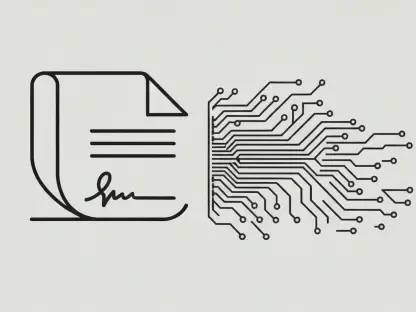In the wake of the financial collapse and subsequent receivership of Key Insurance Co., policyholders are scrambling to secure alternative coverage to avoid interruptions in their automobile insurance. The Kansas Insurance Department’s intervention, following a review that indicated the company’s financial insolvency, has left more than 22,000 policyholders in Nevada facing the prospect of being uninsured. With refunds being issued for policies effective March 4 or later, the urgency for these individuals to find new providers cannot be overstated.
Financial Struggles and Regulatory Actions
The immediate cause for concern among Key Insurance policyholders stems from the stark financial realities outlined in the company’s year-end filings. Key Insurance was found to have liabilities amounting to $65.3 million, significantly outweighing its admitted assets of $57.9 million. A thorough actuarial review further revealed that the reserve liabilities were between $58.6 million and $71.6 million. This financial discrepancy projected an end-of-year surplus ranging from negative $7.4 million to negative $20.4 million. These alarming figures underscored the urgent need for regulatory action to protect policyholders.
The Kansas Insurance Commissioner, Vicki Schmidt, responded by petitioning for the liquidation of Key Insurance. This drastic measure was deemed necessary to mitigate the risks posed by the company’s inability to meet its financial obligations. Over the past four years, Key Insurance had been reporting net losses, including a steep $16.3 million loss in 2024, which critically depleted the company’s policyholder surplus. Initially valued at $13.7 million, this surplus had eroded to negative $7.4 million, signaling profound fiscal instability that required immediate intervention.
Industry-Wide Implications and Historical Context
The predicament faced by Key Insurance policyholders is not an isolated occurrence but part of a broader trend within the U.S. insurance sector. Between 2023 and 2024, the industry witnessed several instances of receivership and liquidation actions, predominantly affecting property and casualty insurers. In 2023 alone, thirteen such insurers faced impairments, with most undergoing insolvent liquidations. Although regulatory interventions slightly decreased in 2024, the trend of insurers entering rehabilitation or liquidation remained a significant concern for the industry.
These developments reflect underlying financial and operational challenges that have plagued the insurance sector. Policyholders of companies like Key Insurance are left grappling with the consequences of these broader industry vulnerabilities. The necessity for immediate action to secure new coverage is further emphasized by the potential for similar situations to arise with other insurers facing financial difficulties.
Consequences for Policyholders and Future Considerations
For the 22,000-plus Nevada policyholders directly impacted by the receivership of Key Insurance, the consequences are immediate and significant. The halting of new business and the issuance of refunds for certain policies have left many scrambling to find alternative coverage to avoid lapses that can affect their legal and financial standing. This rush is not merely about securing basic automobile insurance, but also about ensuring continuous coverage that meets state regulations and personal needs.
In light of these events, policyholders must be vigilant and proactive in seeking new coverage. Evaluating the financial health and stability of potential new insurers becomes a crucial step in this process. Consumers are advised to seek insurers with strong financial ratings and to stay informed about industry trends that may affect their coverage. Industry watchdogs and regulatory agencies play a critical role in monitoring these developing situations, aiming to provide policyholders with the necessary guidance and resources to navigate such financial disruptions.
Takeaway and Future Steps
In the aftermath of Key Insurance Co.’s financial collapse and subsequent receivership, policyholders are urgently seeking alternative coverage to prevent any lapse in their auto insurance. The Kansas Insurance Department stepped in after a review revealed the company’s financial insolvency. Consequently, over 22,000 policyholders in Nevada now face the daunting prospect of being uninsured. To mitigate this, refunds are being issued for policies that were effective from March 4 onward. The race is on for these individuals to secure new insurance providers without delay. The Kansas Insurance Department is working to ensure a smooth transition, but the process underscores the importance of having a reliable and stable insurance provider. Policyholders are advised to act swiftly to avoid any gaps in their coverage, which could have significant impacts on their financial and legal standing. As they navigate this challenging situation, finding trustworthy insurance alternatives is paramount to maintaining peace of mind and protection on the road.









